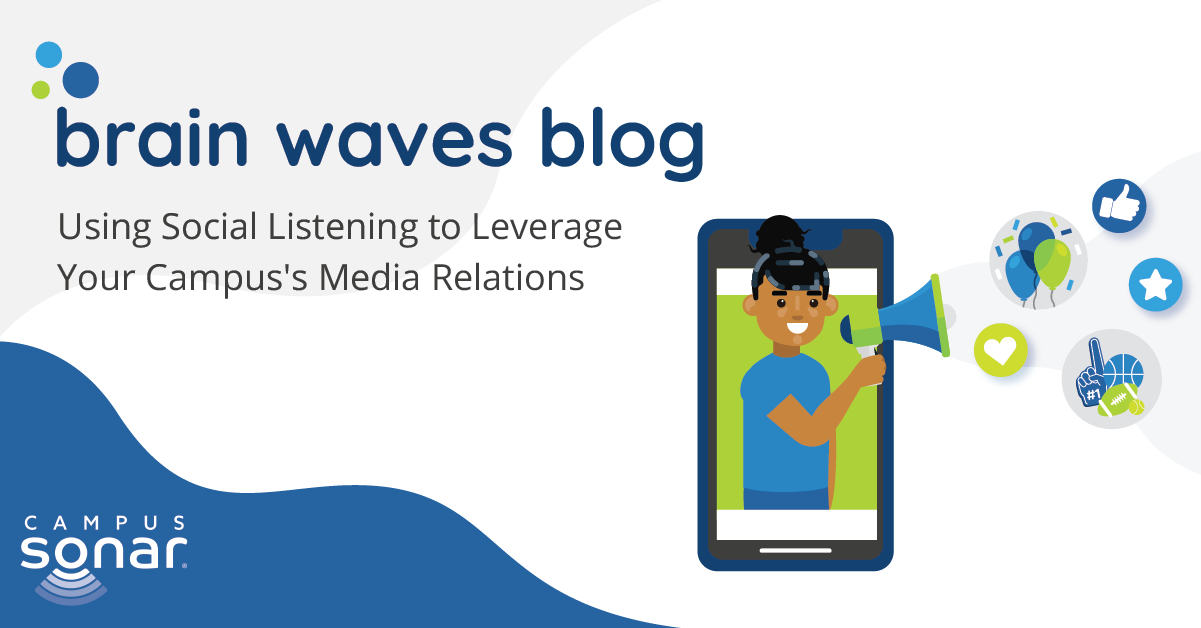Using Social Listening to Leverage Your Campus's Media Relations

Leading the marketing communications efforts for West Virginia University’s largest academic unit, effective media relations was paramount in every aspect of our content strategy. As a Research 1 university, our faculty were frequently contacted by local, regional, and national media to share their expertise, whether it was on the environment, racial justice, labor movements, or more.
To successfully manage your media relations efforts, it is critical to know your experts’ research areas and stay on top of current events to capitalize on intersections when they arise.
But in an academic college with more than 800 faculty members, it was impossible to know every time a journalist interviewed or quoted someone. That was especially true since many of those relationships are formed separately outside of the in-house marketing communications team.
This challenge is especially evident at campuses that use many different names and labels to identify individuals or academic units. More often than not, faculty are likely to have more affinity with their department or discipline rather than the college or school where their academic program is located. It can be difficult (and time consuming!) to manually track or set up alerts for all those terms.
So, unless a reporter contacts you directly or the professor proactively loops you in, how can you know when your faculty are featured? Social listening!
Social listening goes beyond basic monitoring of your online conversation to gather and analyze a comprehensive data set of online intelligence.
At Campus Sonar, we build customized queries using a wide range of search terms unique to your campus to capture all those mentions—not just the ones that identify your campus by name, but all those nicknames, schools, departments, programs, and abbreviations, too. Then, we provide a framework for measuring and evaluating the content of those mentions.
With a more expansive look at your campus’s news and social footprint, your marketing communications team can gain a much more accurate understanding of your campus’s online conversation and brand health. You can then brainstorm new ways to leverage those mentions.
You can use social listening in your media relations strategy to:
- Monitor the top news sources that mention your campus on a daily, weekly, or monthly basis.
- Observe the top authors from those news sources, expanding opportunities to build relationships with journalists.
- Brainstorm placements for future op-eds.
- Analyze the top phrases and topics in your conversation and how they relate to your campus’s research strengths or brand pillars.
- Repurpose or reshare that news with other target audiences, like prospective students or potential donors.
For example, in summer 2021, we teamed up with University of Montana to produce an analysis of their online conversation. Using social listening to analyze mentions from June 1, 2020–May 31, 2021, we helped their marketing communications team assess its brand health in the midst of the pandemic. We found that while athletics and school spirit were a major part of their brand (which is pretty common in higher ed!), research areas like the environment, public health, and journalism were dominant topics in their conversation, too. About one quarter of the campus’s mentions during the analysis period came from news sources alone.
Social listening can also support your media relations efforts beyond just your faculty’s research expertise. For instance, alumni are tangible examples of the value of a degree from your campus, demonstrating pathways from major selection to degree completion to career outcomes. Alumni news, particularly mentions about young alumni, can be shared as success stories in your recruitment messaging to drive enrollment decisions.
News mentions of alumni’s professional achievements are also timely opportunities to update their records and identify potential prospects or ways individuals could support fundraising or student recruitment, such as new jobs, board appointments, and recognitions for philanthropic or professional contributions.
As a former campus pro, I know you're busy, and the last thing you have time to do is find and track all these news mentions on your own. The team here at Campus Sonar would love to partner with you to efficiently identify all those mentions and support your campus’s media relations efforts. You can also give it a try on your own with our free social listening cheat sheet. Whichever path is right for you, social listening is the stepping stone to get you there.

